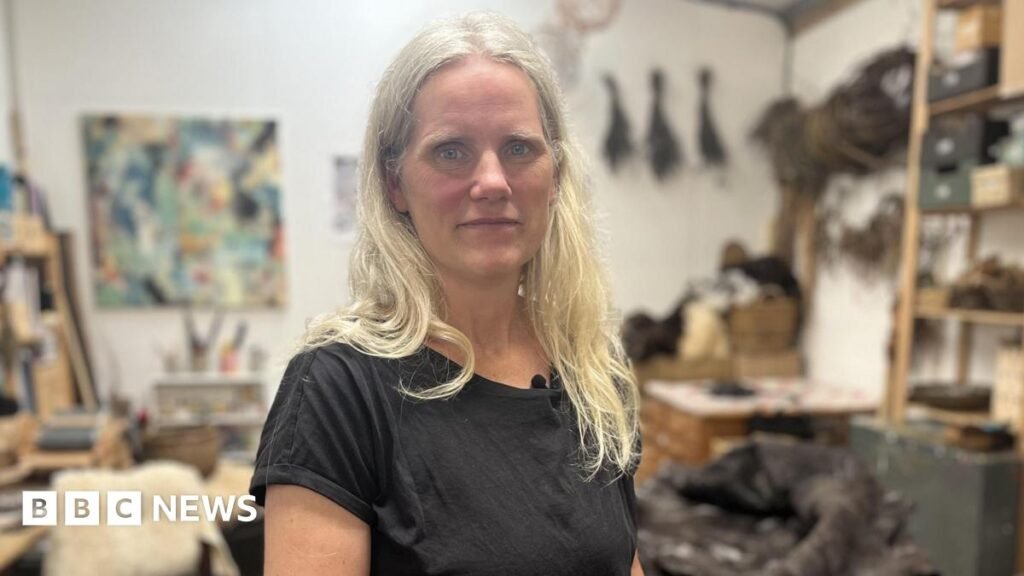In a a recent survey, external of Co-op Funeralcare by YouGov, one in 10 people said they would like more “green” funerals.
Rachel, from Hebden Bridge, West Yorkshire, made a funeral shroud for a friend from local wool, willow, blackberry and ivy as part of her artwork.
Over the years she has explored the themes of death, dying, grief and nature through crafts and functional objects.
But the 50-year-old sees the shroud, which can also eliminate the need for a coffin, as more than just a work of art – and has since decided to make her own.
A common reaction from those who have seen the creature is to ask if they can touch it, feel how soft it is.
For Rachel, it’s the perfect way to help people address the taboo subject of death.
She also works as a death doula, which involves supporting dying people and their loved ones to make informed choices about funeral care.
“I find that when we talk about death, everyone I’ve met sees it as useful and healthy and something that enriches life,” she says.
“When someone dies, it’s often so shocking. We’re just getting on the ‘here’s what’s going on’ treadmill, so I want to open up those conversations.
“I want more people to know that there are options and that we don’t have to be put in a box.”
The practice of digging graves 6 feet (1.82 m) deep dates back to at least the 16th century and is believed to have been a precaution against the plague.
When Rachel’s time comes, she wants a natural burial, which means using a biodegradable coffin or shroud in a shallow grave. The topsoil contains more active microbes, so bodies can decompose in about 20-30 years, rather than up to 100 in a traditional grave.

